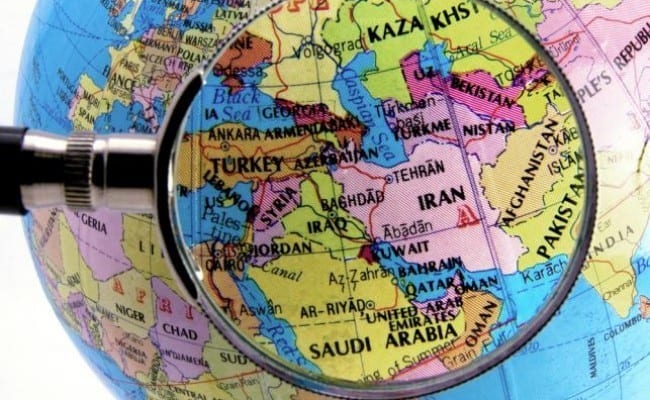Βy Fadi Esber, Arab News
As the war against Daesh comes to an end in Iraq and Syria, the terrorist organization attacked a Sufi mosque in Egypt’s Sinai, killing more than 300 innocent people.
This massacre is a dreadful reminder that although the Daesh pseudo-caliphate has been obliterated militarily, the group’s twisted ideology and some isolated pockets of resistance still dot the map of the Middle East and beyond. But the glass is half full. Daesh was able to carry out this attack and bring untold misery, but it is unable to control even a small town in the Sinai, let alone in the Egyptian hinterland.
It is unable to find a safe haven because Egypt is not a failed state or even a failing one, and because the army is a functioning military force. Furthermore, Egypt is not under severe international or regional political pressure, and no foreign powers are trying to play out their differences on Egyptian soil. Daesh can hit and run, but it cannot establish itself in any urban area in the country.
As long as foreign powers treat Syria and Iraq as a playground for their competing interests, rather than seeking to establish a stable regional order, a terrorist resurgence will remain a looming threat. A lot of ink has been spilled in the past five years on the Daesh phenomenon. Numerous books and studies have examined the sociopolitical, economic and religious roots of the terror group and its twisted ideology.
I do not aim to contradict any of their findings, or downplay the roles that political repression, economic inequality and social alienation played in Daesh’s emergence and expansion, and in drawing thousands of young recruits from across the world. But we must not forget the immediate catalysts behind Daesh’s ability to establish a pseudo-state that stretched at one point from Baghdad to Damascus.
When the US invaded Iraq in 2003, turning the regional order on its head, Al-Qaeda quickly moved into the country. When US forces withdrew, it was claimed that the terrorist group would not be able to re-establish itself. Yet when war erupted in Syria, Al-Qaeda in Iraq — which rebranded itself as the Islamic State of Iraq (ISI) — soon reappeared.
Regional players flooded Syria with weapons, fighters and toxic ideas, and international powers remained aloof. Feeding off the chaos in Syria, the legacy of sectarian strife that engulfed Iraq after 2003, and the failed policies of the Baghdad government, the ISI gathered enough resources, territory and recruits, morphing into Daesh. The same story goes for Libya.
There is a lot to be done in Egypt in terms of political reconciliation, social justice and economic development. Nonetheless, because political order remains more or less stable, we do not see battles erupting in major Egyptian cities, or entire swaths of the country falling to terrorists. It is the crumbling regional order around Egypt, especially the chaos in Libya, that is enabling terrorists to make inroads into the country and pose a serious threat to its stability.
Both Iraq and Syria need time to heal, to resolve longstanding sociopolitical and economic grievances that fueled conflict, and to embark on a wide-scale reconciliation process in order to overcome the legacies of death and destruction.
Fadi Esber
In the Sinai, where the complex situation cannot be explained in a mere paragraph, local terrorists have affiliated themselves with Daesh, like many other local terror groups worldwide, and continue to wage a war of attrition against Egyptian forces. The military defeat of Daesh in Iraq and Syria, and the demise of the entity it established, shows that any extremist territorial project is unsustainable, including any attempted one in the Sinai.
But many individuals will still draw inspiration from Daesh’s propaganda, and might see its defeat in Iraq and Syria as a mere bump in the road. Their fantasies aside, Daesh in Iraq and Syria is defeated; now it is time to deny it any future incubator in either country.
In Iraq and Syria, political developments are gathering steam. The recent US-Russian agreement, followed by the Sochi Summit and subsequent Russian diplomacy, gave a significant push to the conflict-resolution effort in Syria. All the major players, including Russia, the US, Turkey, Saudi Arabia, Iran, and the Syrian government and opposition, have nominally agreed to the Geneva political process as a gateway to solving the crisis.
In Iraq, tensions between Baghdad and Irbil have cooled down, and the country is set to have its first post-Daesh parliamentary elections in the spring. Both Iraq and Syria need time to heal, to resolve longstanding sociopolitical and economic grievances that fueled conflict, and to embark on a wide-scale reconciliation process in order to overcome the legacies of death and destruction.
But all the aforementioned processes hinge on the ability of involved international and regional powers, especially those with troops on the ground, to construct and maintain a stable regional order via diplomacy.
If any international or regional power considers the current formulae as temporary, subject to change in case one player sees an opportunity to maximize its gains, or to counter any unsatisfactory gain made by another player, we might end up right where this nightmare started. In that case, the current sought-after peace could turn out, as the late historian David Fromkin described the post-World War I settlements in the Middle East, as a “peace to end all peace.”
— Fadi Esber is a founding associate at the Damascus History Foundation, a private organization promoting research on themes related to the history of Damascus from the 19th century to the present. He is pursuing a doctorate in history at the London School of Economics and Political Science.









